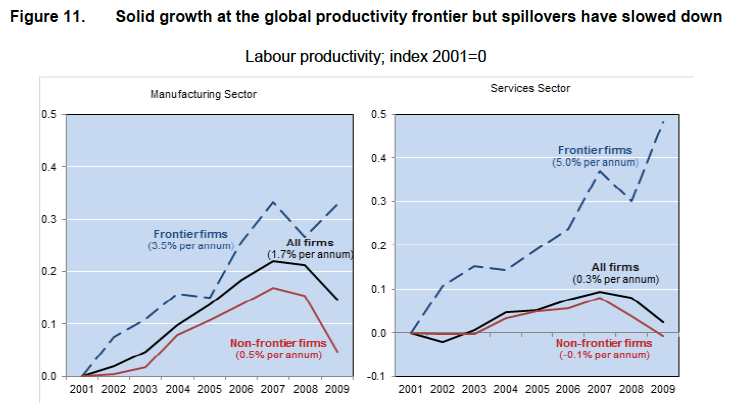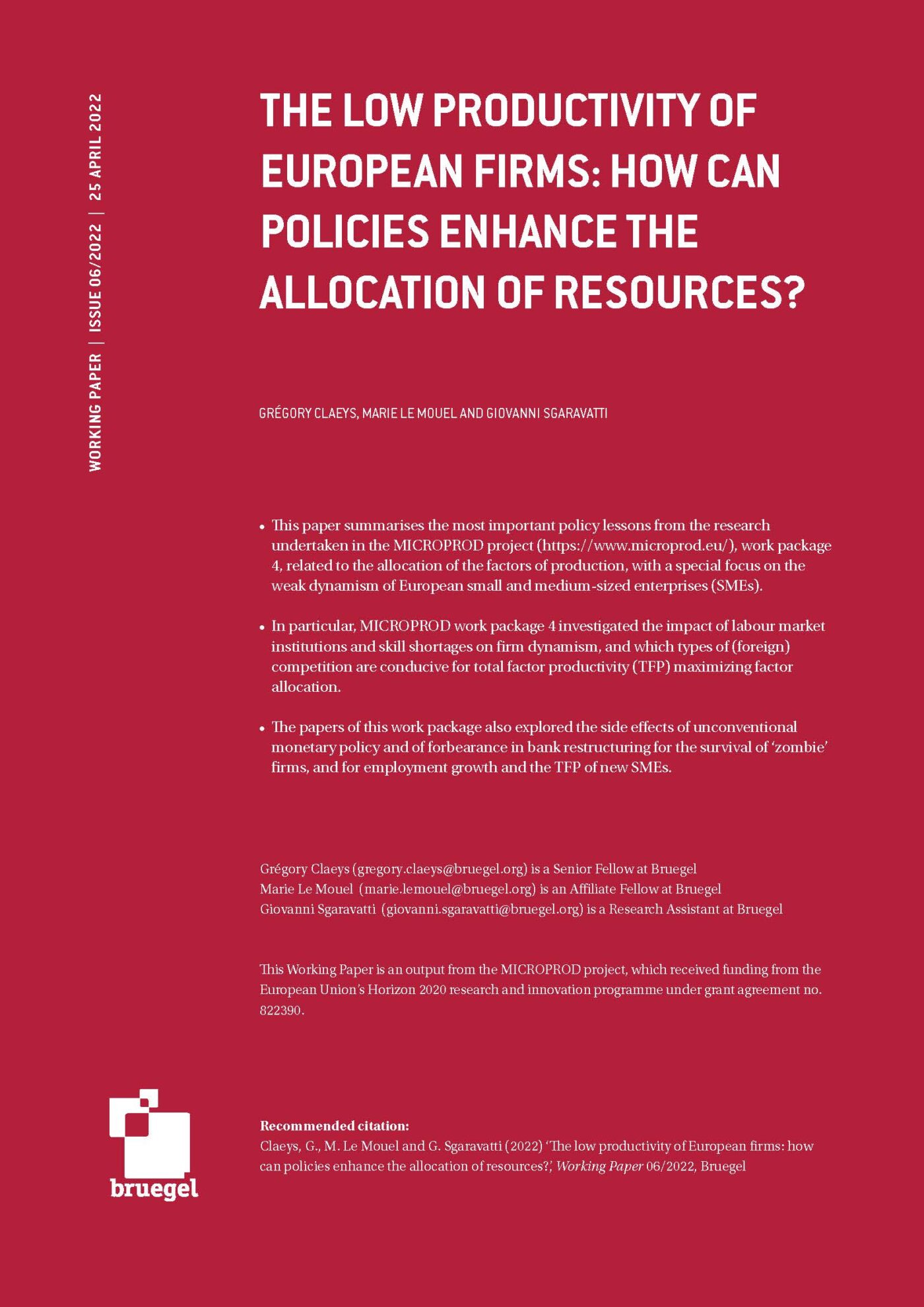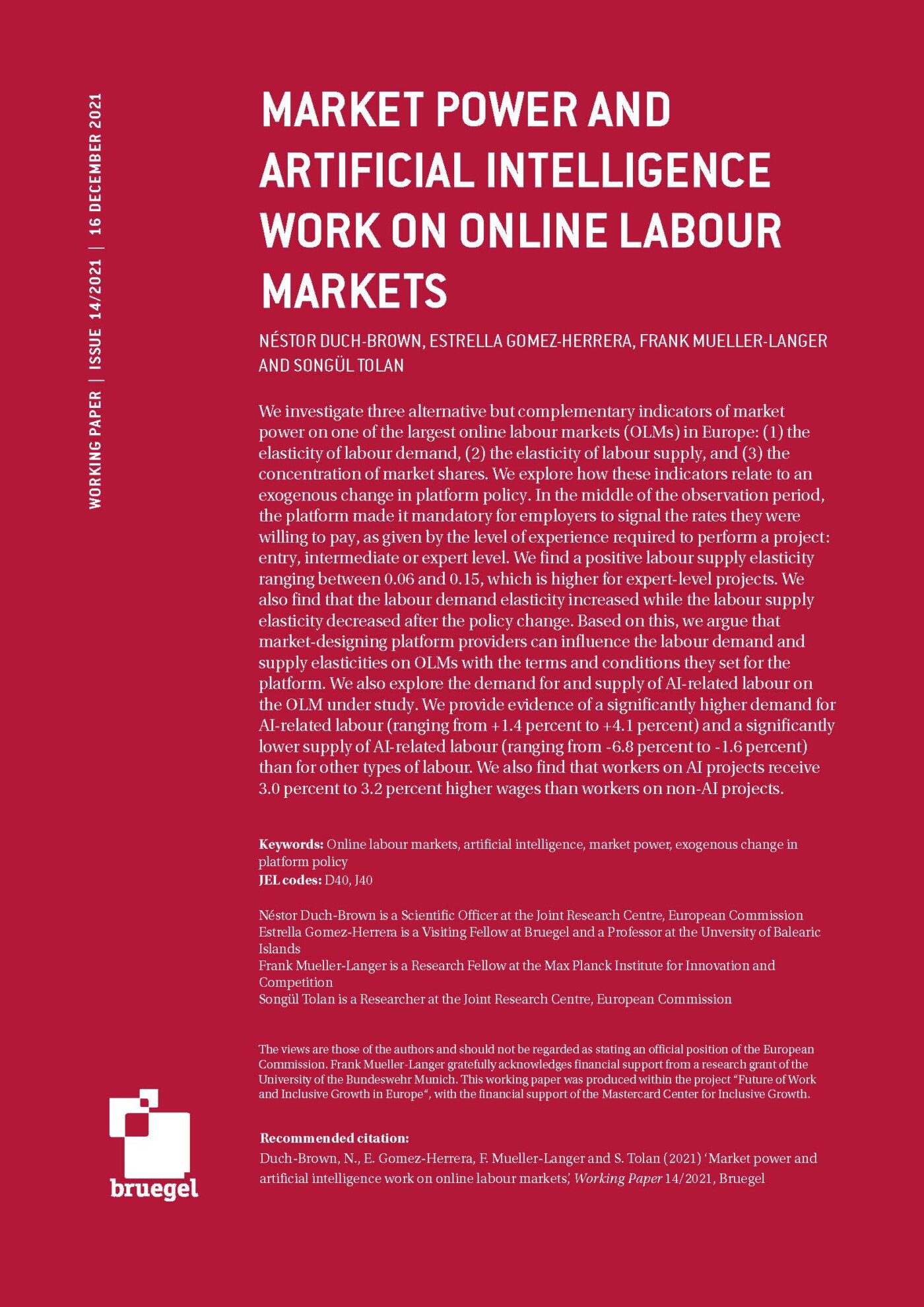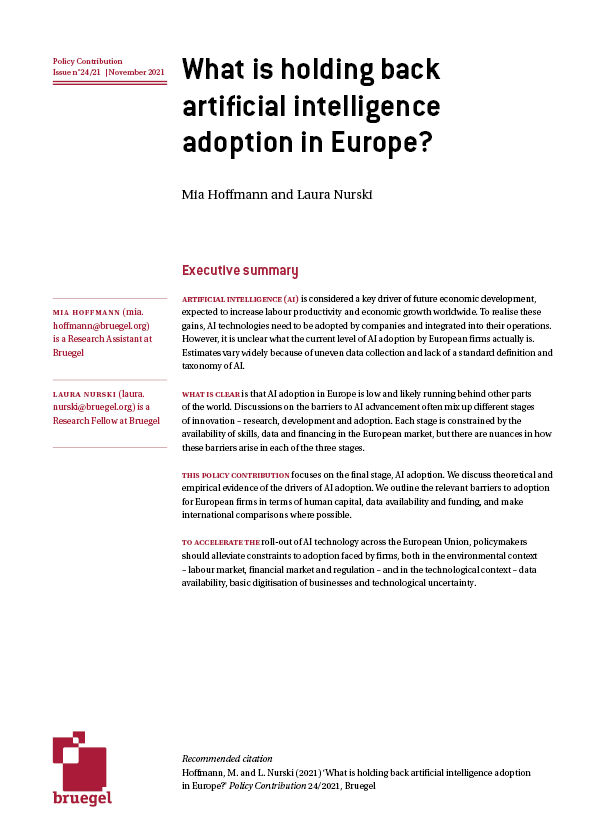Blog Post
The breakdown of productivity diffusion
The OECD has been pushing the idea that the productivity slowdown is not so much due to a lack of innovation but rather due to a lack of innovation diffusion between firms.
The OECD view
Jane Bourke writes that a recent OECD report – “The Future of Productivity” – presents a new perspective on what drives national productivity growth. The OECD explains that in every world economy there are some ‘frontier firms’, which are internationally competitive and match global high standards in productivity. However, the majority of firms – up to 80 per cent – are not in this category. These firms may have a more domestic market orientation, and much lower average productivity and the OECD calls them ‘non-frontier firms’.
Timothy Taylor writes the report argues that slower productivity in high-income countries is not because cutting-edge firms are slowing down in their productivity growth, but rather because other firms aren’t keeping up. To put it another way, productivity growth isn’t diffusing across economies.
Chiara Criscuolo writes that the slow productivity growth of the “average” firm masks the fact that a small cadre of firms are experiencing robust gains. Timothy Taylor writes that the evidence of Figure 11 below suggests that the possibilities for productivity growth haven’t slowed down, but that large parts of the economy are having a harder time putting the practices that lead to faster productivity growth into effect.

Alex Tabarrok writes that it’s unclear why this is happening. Patents and other intellectual property being locked up in the frontier firms is one possible answer. Another possibility is that innovations are embedded in capital so you need new investment to diffuse innovation and business investment has been low for some time perhaps for “cyclical” reasons. The OECD argues that this is consistent with: i) longer run evidence on the penetration rates of new technologies (e.g. Comin and Mestieri, 2013); ii) winner takes all dynamics (Gabaix and Landier, 2008); and iii) the rising importance of tacit knowledge.
Winton Bates writes that the authors discount the winner-take-all explanation because the divergence is not confined to the ICT sector where winner-take-all dynamics might be expected to be most important.
Inequality among firms and income inequality
Alex Tabarrok writes that a failure of innovation diffusion is also consistent with the argument that much of the rise in income inequality can be attributed to greater inequality among firms. Jane Bourke notes that a recent study by Card et al. (2013) suggests that the observed rise in wage inequality appears to at least reflect the increasing dispersion in average wages paid across firms. Thus, raising the productivity of laggard (late adopter) firms could also contain increases in wage inequality, while reducing costs and improving the quality and variety of goods and services.
Jae Song and coauthors write that in the absence of comprehensive evidence on wages paid by firms, it is frequently asserted that inequality within the firm is a driving force leading to an increase in overall inequality. Using data on wage earnings for a one-sixteenth percent representative sample of U.S. workers, and the (100 percent) population of U.S. firms, between 1978 and 2012. Contrary to the assertions made by Mishel and Sabadish (2014), Piketty (2013), and others, we find strong evidence that within-firm pay inequality has remained mostly flat over the past three decades.
Matt O’Brien writes that new research shows that it’s not super-managers, but rather super-managers and everybody else at super-companies that are behind the growing income gap. The research team of Jae Song of the Social Security Administration, Fatih Guvenen of the University of Minnesota, and David Price and Nicholas Bloom of Stanford were able to look at what had previously between private earnings data for every company between 1978 and 2012—the best data we have so far—and found that the pay gap between executives and their own workers had barely changed during this time. What had changed, though, was the pay gap between every worker at the highest-paid firms and everyone else. In other words, inequality exploded because the top 1 percent of companies were making more and paying all their employees more. This was true across the country and across industries.
Jae Song and coauthors write that there are several potential explanations for these findings. One possibility is increased sorting: that is, perhaps, in the 1980s firms were employing workers from a broader set of skill levels but have become increasingly specialized over time, so that now firms employ workers from narrower skills groups. Therefore, some firms pay much higher average wages than before because their average worker quality has increased. A second potential explanation is growing productivity differentials across firms. If the production technology delivers positive assortative matching and workers are mobile and then higher skill workers will flock into higher productivity firms.
Republishing and referencing
Bruegel considers itself a public good and takes no institutional standpoint. Anyone is free to republish and/or quote this post without prior consent. Please provide a full reference, clearly stating Bruegel and the relevant author as the source, and include a prominent hyperlink to the original post.






